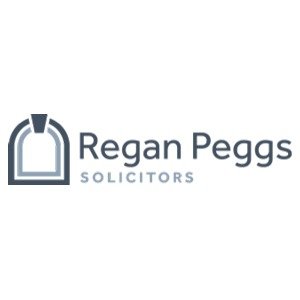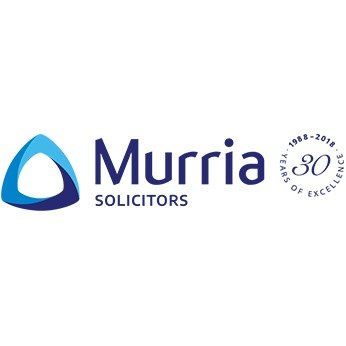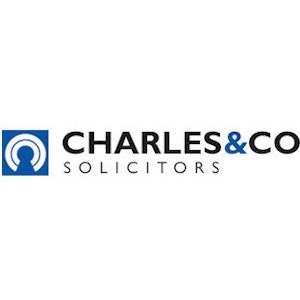Best FDA Law Lawyers in Birmingham
Share your needs with us, get contacted by law firms.
Free. Takes 2 min.
List of the best lawyers in Birmingham, United Kingdom
About FDA Law in Birmingham, United Kingdom
FDA Law in Birmingham refers to the body of rules and regulations governing the approval, safety, marketing, and ongoing monitoring of food, medicines, medical devices, and cosmetics. While there is not an agency directly equivalent to the United States Food and Drug Administration (FDA), the United Kingdom’s regulations are administered chiefly by the Food Standards Agency (FSA) for food products and the Medicines and Healthcare products Regulatory Agency (MHRA) for drugs and medical devices. Given Birmingham’s status as a growing centre for healthcare, biotechnology, and food production, compliance with these regulations is crucial for companies operating in these sectors. Individuals and businesses must understand the framework to avoid penalties, ensure public safety, and protect their commercial interests.
Why You May Need a Lawyer
Legal advice in FDA Law may become necessary for various reasons. Common situations include:
- Bringing a new food product, supplement, medicine, or medical device to market and ensuring it meets UK regulatory requirements
- Responding to investigations or enforcement actions from the FSA or MHRA related to compliance breaches
- Appealing the refusal of product authorisation or challenging the results of an inspection
- Protecting your intellectual property while navigating health and safety regulations
- Advising on labelling, advertising, and marketing claims to prevent misleading consumers
- Guiding importers and exporters on regulatory requirements for products crossing UK borders post-Brexit
- Defending against criminal or civil liability linked to unsafe food or health products
- Gaining clarity on novel food regulations or advanced therapy medicinal products
Local Laws Overview
In Birmingham, FDA-related law falls under key pieces of national legislation, interpreted and enforced locally by authorities. The Food Safety Act 1990 and the General Food Law Regulation govern food businesses, holding them accountable for food safety, hygiene, and accurate labelling. For medicines and medical devices, the Human Medicines Regulations 2012 and the Medical Devices Regulations 2002 apply, while the MHRA oversees approval, registration, and post-market surveillance.
Since Brexit, the United Kingdom has developed its own notification and authorisation systems for food and drug products. Local authorities in Birmingham, often alongside the national agencies, may conduct inspections or investigate complaints. Businesses must keep abreast of both local enforcement priorities and evolving UK-wide standards to ensure ongoing compliance.
Frequently Asked Questions
What is considered a novel food in the United Kingdom?
A novel food is any food that was not consumed to a significant degree in the European Union or UK before May 1997. Examples include new sources of vitamins, plant extracts, or foods produced using new technologies. These require pre-market authorisation from the Food Standards Agency.
How are new medicines approved for use in Birmingham?
The Medicines and Healthcare products Regulatory Agency (MHRA) is responsible for authorising medicines in the UK. Applicants must submit scientific evidence proving the medicine’s safety, quality, and efficacy before marketing it in Birmingham or elsewhere in the country.
Can I sell CBD products in Birmingham?
Yes, but CBD products must comply with UK law. Foods containing CBD are considered novel foods and require authorisation from the FSA. Medicinal claims are heavily regulated, and some products may also be subject to MHRA oversight.
What are the labelling requirements for food products?
Foods sold in Birmingham must carry labels that include key information such as the name of the food, list of ingredients, allergen information, net quantity, durability date, and business details. Labels must not mislead consumers about the nature, quality, or origin of the product.
What should I do if my business is being investigated by the FSA or MHRA?
You should seek legal advice immediately. Cooperate with investigators but ensure your rights are protected. A specialist lawyer can advise you on evidence, procedural safeguards, and how to resolve the investigation favourably.
How can I check if a food additive is permitted in the UK?
The FSA maintains a register of permitted food additives. Only those listed and used within established limits are allowed. Your legal advisor can help interpret the current list and its application to your products.
Who regulates cosmetics in the UK?
Cosmetic products are regulated by the Office for Product Safety and Standards (OPSS) under the Cosmetics Regulation. Safety assessments, labelling, and claims are strictly controlled to protect consumers.
Can I import food products from outside the UK to Birmingham?
Yes, but imported products must meet UK standards for safety, labelling, and composition. Post-Brexit, procedures for import documentation and customs checks are more rigorous, so legal guidance is recommended.
What are the penalties for violating FDA-related regulations?
Penalties vary from warnings and product recalls to significant fines or imprisonment for severe breaches, especially where public health is endangered. Businesses can also suffer reputational harm.
How do I ensure advertising claims on my products are compliant?
Advertising and marketing claims must be truthful and supported by evidence. Both the Advertising Standards Authority (ASA) and regulatory bodies monitor compliance. Legal review of claims and promotional materials can prevent enforcement actions.
Additional Resources
Several organisations provide authoritative guidance, support, and enforcement in FDA Law matters:
- Food Standards Agency (FSA) - Responsible for food safety and hygiene enforcement and guidance
- Medicines and Healthcare products Regulatory Agency (MHRA) - Regulates medicines and medical devices
- Local Authority Environmental Health Departments in Birmingham - Conduct food premises inspections and investigations
- Office for Product Safety and Standards (OPSS) - Oversees cosmetics and consumer goods
- Advertising Standards Authority (ASA) - Regulates advertising claims and prevents misleading consumers
- Law Society of England and Wales - Directory for finding qualified solicitors with FDA Law experience
Next Steps
If you need legal assistance with any aspect of FDA Law in Birmingham:
- Gather all documentation relevant to your issue, including correspondence with regulators, product information, and inspection reports
- Identify the specific regulatory body involved in your situation
- Research local solicitors or law firms with expertise in food, drug, and consumer safety laws
- Prepare a concise summary of your issue and objectives for your initial consultation
- Book a meeting to discuss your case and ask about the solicitor’s experience handling similar matters
- Act promptly if facing investigation, enforcement action, or business disruption to protect your rights and interests
Remember, compliance with food and drug regulations safeguards consumers and the integrity of your business. Professional legal advice ensures you navigate the requirements confidently and avoid costly pitfalls.
Lawzana helps you find the best lawyers and law firms in Birmingham through a curated and pre-screened list of qualified legal professionals. Our platform offers rankings and detailed profiles of attorneys and law firms, allowing you to compare based on practice areas, including FDA Law, experience, and client feedback.
Each profile includes a description of the firm's areas of practice, client reviews, team members and partners, year of establishment, spoken languages, office locations, contact information, social media presence, and any published articles or resources. Most firms on our platform speak English and are experienced in both local and international legal matters.
Get a quote from top-rated law firms in Birmingham, United Kingdom — quickly, securely, and without unnecessary hassle.
Disclaimer:
The information provided on this page is for general informational purposes only and does not constitute legal advice. While we strive to ensure the accuracy and relevance of the content, legal information may change over time, and interpretations of the law can vary. You should always consult with a qualified legal professional for advice specific to your situation.
We disclaim all liability for actions taken or not taken based on the content of this page. If you believe any information is incorrect or outdated, please contact us, and we will review and update it where appropriate.














